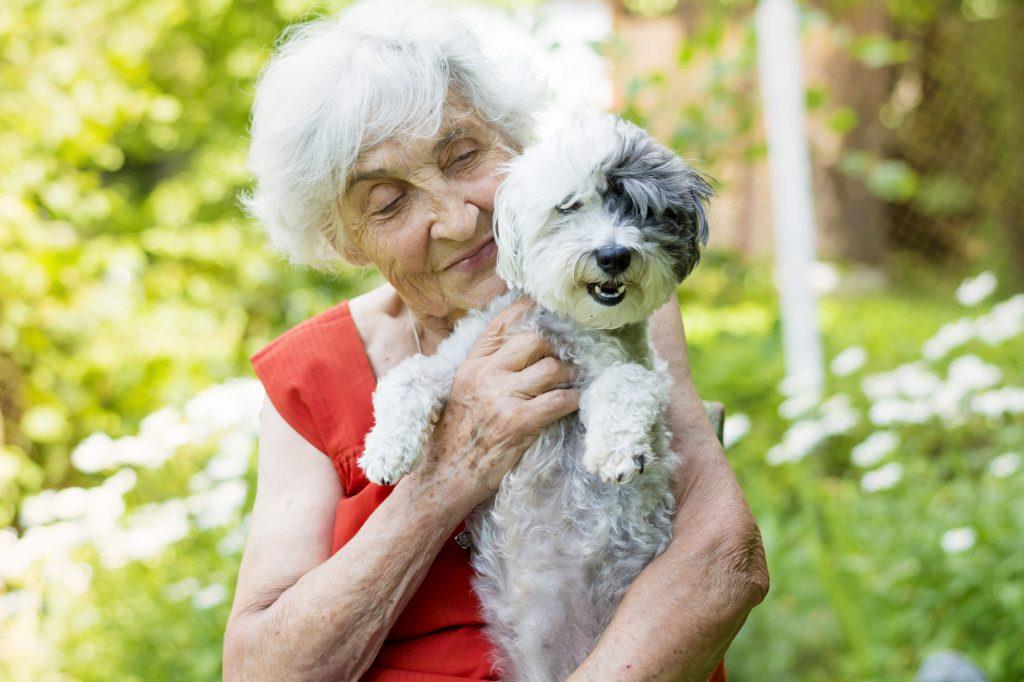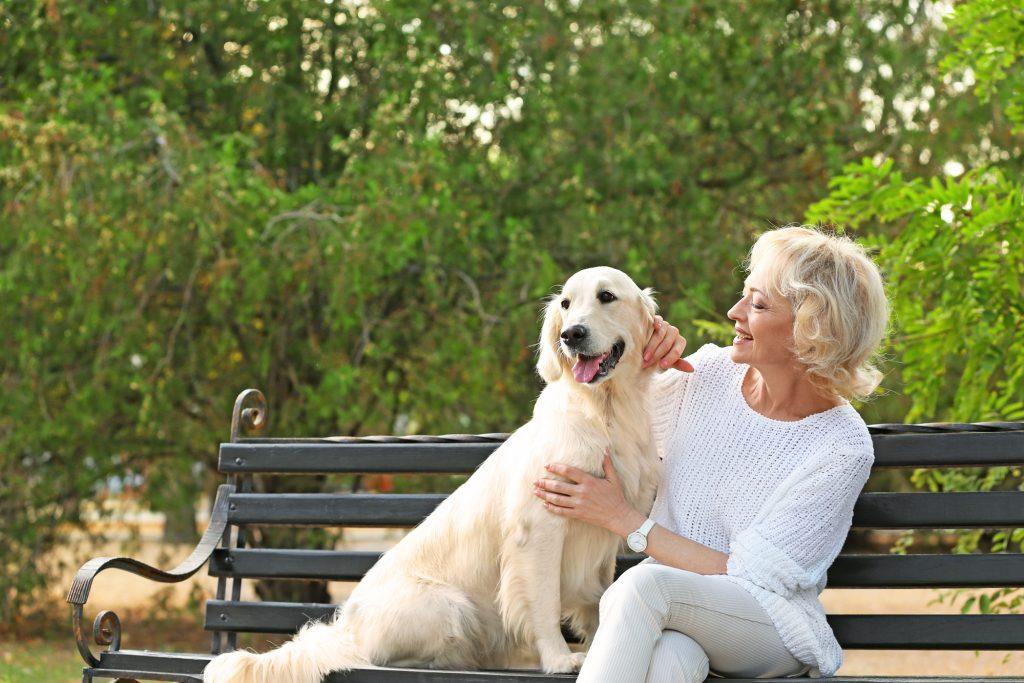Introduction to the Importance of Pets for Elderly Individuals
A prevailing component of psychological wellbeing among senior citizens is the companionship provided by pets. The significance of this topic lies in the underexplored potential of pets as a source of emotional comfort and stability for the elderly.
The sections of this article delve into the profound impact of pets on the mental health of elderly individuals, with a focus on the positive influence of pet ownership on seniors’ emotional health, physical well-being, and social interactions. Research has shown that pets, particularly dogs and cats, can help reduce stress, lower blood pressure, and increase social interaction among the elderly.

By exploring the psychological impact of pets on seniors, we aim to shed light on the often overlooked coping mechanisms for dealing with loneliness, isolation, and the emotional challenges that come with age. This article is an essential read for anyone interested in understanding the multifaceted benefits of pet ownership for the elderly.
We recommend the addition of a chart showing the correlation between pet ownership and improved mental well-being in seniors. This would serve to visually enhance the points made in the article.

Understanding the Psychological Needs of the Elderly
As people age, they often face unique psychological challenges. Common mental health issues among seniors include depression, anxiety, and dementia. These issues may be exacerbated by chronic physical health problems and social isolation.
The Role of Companionship and Emotional Support in Mental Health
Companionship and emotional support play a vital role in maintaining mental health in seniors. Studies show that social interactions can help reduce feelings of loneliness and improve overall well-being. Providing emotional support to the elderly can also help them cope with the changes and challenges they face during this life stage.
Importance of Purpose and Routine for Seniors
Having a sense of purpose and maintaining a daily routine are also crucial for the mental health of the elderly. Regular activities can provide structure, reduce stress, and improve cognitive function. Volunteering or taking part in community activities can offer a sense of purpose and fulfilment.
Pets as a Source of Companionship
Pets are remarkable companions. They provide a unique sense of companionship, loyalty, and unconditional love. A pet’s presence can help combat feelings of isolation and loneliness, especially for seniors. They also encourage routine, physical activity and social interaction, essential elements for mental well-being. Studies have shown that pet ownership can reduce stress, lower blood pressure, and increase overall happiness.
The Depth of the Bond Between Pets and Their Owners
The bond between pets and their owners is profound and deep-seated. Pets become cherished family members, offering emotional support and comfort. They have an exceptional ability to understand and respond to their owners’ emotions, which strengthens the bond between them. There is a significant correlation between pet ownership and increased emotional well-being.

Illustrating Companionship Provided by Pets
- A case study by The National Center for Biotechnology Information highlighted a senior woman who, despite suffering from depression and anxiety, found solace and companionship in her pet cat, leading to improved mental health.
- Another example is of a senior man whose pet dog provided the motivation for daily walks, promoting physical activity and boosting his overall well-being.
These examples underline the power of pets in enhancing the quality of life for seniors. They not only offer companionship but also contribute to the overall mental, emotional, and physical well-being of their owners.
Psychological Benefits of Pet Ownership for Seniors
As we age, feelings of loneliness and isolation can become prevalent. For seniors, research has shown that pet ownership can significantly alleviate these feelings. Pets provide companionship, unconditional love, and a sense of being needed, all of which can counteract feelings of loneliness and isolation.

Additionally, pets can be potent stress-busters. Studies suggest that interaction with pets can lower blood pressure and cortisol levels, reducing stress and anxiety. The physical contact and the routine care for a pet can help seniors maintain a calm, composed mind.
Lastly, pets provide seniors a sense of purpose and routine. As pets require regular feeding, grooming, and exercise, they can help structure the day for seniors and keep them active. This daily routine can prevent cognitive decline, as evidenced by numerous studies, presenting pets as not just companions, but integral to a senior’s mental health.
The Physical and Mental Health Benefits of Pet Ownership
For seniors, the companionship of a pet can provide a myriad of benefits. Not only does owning a pet provide emotional support and social interaction, but it also encourages increased physical activity. Studies show that pet owners tend to have lower blood pressure, lower cholesterol levels, and a better overall physical health. The act of walking a dog or simply engaging in play with a pet can lead to increased activity levels, which in itself carries a range of health benefits.

The Positive Impact of Physical Health on Mental Well-being
Improved physical health can greatly impact mental health in a positive way. Regular physical activity, promoted by pet ownership, can help to reduce anxiety, depression, and negative mood by improving self-esteem and cognitive function. Exercise is also known to alleviate symptoms of social withdrawal, a common issue among seniors.
Statistics on Pet Ownership and Health Benefits
According to a study published in the American Heart Association’s journal Circulation, pet owners, particularly those with dogs, were found to have lower heart disease risks, reinforcing the physical health benefits of pet ownership. Furthermore, people who own pets are also less likely to suffer from depression than those without pets.
Challenges and Considerations for Seniors Owning Pets
Senior pet ownership presents a unique set of challenges. Physical limitations may make pet care tasks, such as walking a dog or cleaning a cat’s litter box, more troublesome. Statistics show that seniors may experience decreased mobility and strength, which can impact their ability to adequately care for a pet. Financial constraints can also be daunting, with costs such as veterinary bills, grooming, and food often underestimated.
Furthermore, seniors must also consider the lifespan of the pet. Choosing a pet with a shorter lifespan may lead to emotional distress, while longer-lived pets may outlive their owners.
These challenges, however, can be mitigated. Seniors can opt for low-maintenance pets, or seek assistance from pet care services. Financial aid and pet insurance can help manage the costs. Emotional support can also be sought from psychologists or support groups.
Before acquiring a pet, seniors should consider their lifestyle, health status, and available support system. It’s crucial to make an informed decision that considers both the welfare of the pet and the well-being of the owner.
Role of Pets in Assisted Living and Nursing Home Settings
Across Australia, more and more care institutions are recognising the therapeutic benefits of pet therapy. Pets, or more formally, Animal-Assisted Therapy (AAT), are increasingly being used in assisted living and nursing home settings.
Pets have been found to provide emotional support, comfort and companionship to seniors. Studies reveal they can also help reduce anxiety, lower blood pressure and increase physical activity. However, challenges exist such as allergy concerns, pet care responsibilities and potential injuries.

Success Stories of Pet Therapy Programs
Take, for instance, the Dementia Australia’s successful pet therapy program. The program utilises trained dogs to provide comfort and stimulation for dementia patients, with remarkable results.
Conclusion: The Transformative Power of Pets for Seniors
In the context of a society increasingly aware of mental health, the psychological benefits of pets for seniors cannot be underestimated. Research has consistently shown that pets can provide invaluable support in managing stress, loneliness, and increasing overall happiness levels. They play a vital role in promoting seniors’ mental health, often acting as a buffer against the adversities of ageing.
Moreover, the importance of pets in fostering a sense of purpose and promoting social interaction is paramount for seniors. They can help elders feel loved, needed, and engaged, thereby significantly enhancing their well-being.
However, there is a need for further research and action in this area. It is essential to understand better how pets can be effectively integrated into senior care plans and mental health strategies. As we move forward, Australia’s ageing population necessitates innovative and compassionate approaches to elder care, and pets may indeed be a significant part of the solution.


